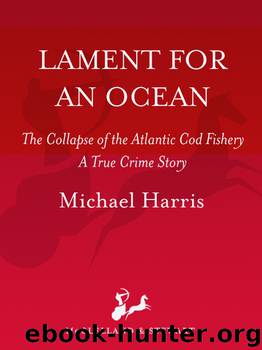Lament for an Ocean by Michael Harris

Author:Michael Harris [Harris, Michael]
Language: eng
Format: epub
ISBN: 978-1-55199-476-5
Publisher: McClelland & Stewart
Published: 1999-09-10T04:00:00+00:00
9
THE BAILOUT BLUES
With fitting pomp and circumstance, Ottawa announced The Atlantic Groundfish Strategy (TAGS) on May 16, 1994. At $1.9 billion, it was the second-largest spending program initiated by the Chrétien government, surpassed only by the national infrastructure program, the glittering lure the Liberals had dangled in front of voters before the 1993 federal election as they trolled for votes. The program replaced NCARP and was to be administered by Human Resources Development Canada (HDRC).
John Crosbie and his officials had originally believed that about twenty thousand people would need income support, but by the time TAGS was put in place, there were nearly forty thousand fishermen and plant workers claiming support throughout Atlantic Canada and Quebec. Income support would continue, but TAGS also had the mandate to reduce capacity in the industry by half — a goal first proposed by the federal fisheries department in 1970.
By the end of its first year, TAGS was $105 million over budget. Earle McCurdy, head of the FFAW, warned that cuts to the TAGS program, changes to UI, and rumoured increases in access and licence fees could spark “a period of turmoil” on the East Coast. McCurdy said he had never seen so much frustration with the federal government in Newfoundland fishing communities during his long union career. “The simple message is that enough is enough and it’s time to lay off.”
On August 10, 1995, the federal government announced several measures aimed at cutting cost overruns in TAGS. More fishermen than originally anticipated had qualified, and if the program continued to hand out benefits at the present rate there would be a $385 million deficit by 1999 when TAGS was originally set to expire. (Some estimates for cost overruns went as high as $800 million.) In response to union and political pressure, Ottawa decided to address the deficit problem by cutting training programs, administrative budgets, and the amount spent on capacity reduction, rather than cutting income-support payments to the fishermen.
By January 1995, only 3,800 of 30,000 or so Newfoundland fishery workers had signed up for retraining. Those who did tended to be younger and willing to leave their homes to find work. Fifteen thousand fishery workers over the age of forty-five saw no point in retraining or leaving. Only 2 per cent of TAGS clients had applied for relocation assistance. Some fishermen had invested as much as half a million dollars in their homes and businesses, and abandoning them for life in Mississauga was not an uplifting prospect.
Like many federal programs, TAGS sometimes had the opposite effect of what government intended. At their plant in Lunenburg, Nova Scotia, National Sea Products had twenty-five experienced people quit full-time jobs paying $10.38 an hour to go on TAGS. National Sea estimated it cost the company $4,800 for each of these employees in terms of lost productivity and the recruitment and training of replacements. All 650 of the company’s plant workers were employed at the time and there were no immediate plans for layoffs.
To qualify for TAGS,
Download
This site does not store any files on its server. We only index and link to content provided by other sites. Please contact the content providers to delete copyright contents if any and email us, we'll remove relevant links or contents immediately.
The Lonely City by Olivia Laing(4802)
Animal Frequency by Melissa Alvarez(4474)
All Creatures Great and Small by James Herriot(4323)
Walking by Henry David Thoreau(3963)
Exit West by Mohsin Hamid(3829)
Origin Story: A Big History of Everything by David Christian(3692)
COSMOS by Carl Sagan(3625)
How to Read Water: Clues and Patterns from Puddles to the Sea (Natural Navigation) by Tristan Gooley(3469)
Hedgerow by John Wright(3364)
How to Read Nature by Tristan Gooley(3341)
The Inner Life of Animals by Peter Wohlleben(3319)
How to Do Nothing by Jenny Odell(3303)
Project Animal Farm: An Accidental Journey into the Secret World of Farming and the Truth About Our Food by Sonia Faruqi(3221)
Origin Story by David Christian(3202)
Water by Ian Miller(3188)
A Forest Journey by John Perlin(3077)
The Plant Messiah by Carlos Magdalena(2935)
A Wilder Time by William E. Glassley(2863)
Forests: A Very Short Introduction by Jaboury Ghazoul(2842)
